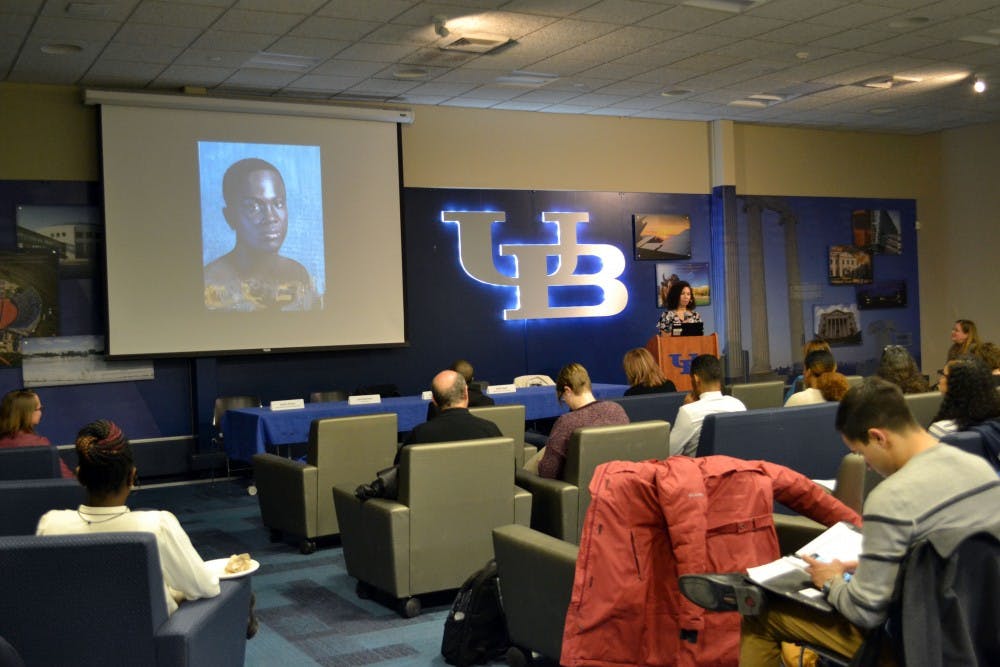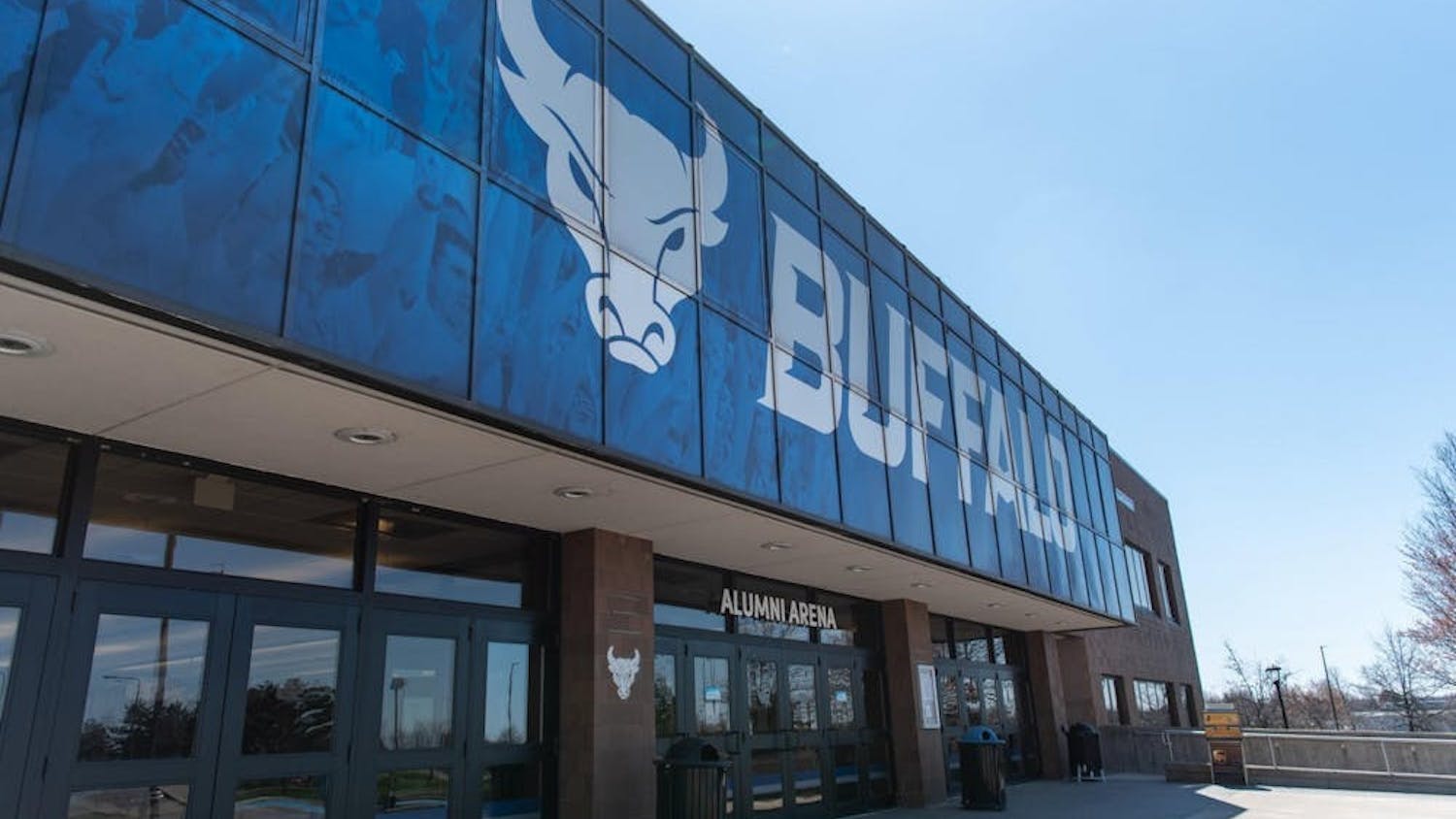Julia Bottoms said she believes art will save us from our own ignorance.
Bottoms, a local artist, was one of four panelists at UB's DifCon event called “Wakanda Forever: Can Art Save Us?” DifCon, or Difficult Conversations, is a discussion series hosted by the Office of Inclusive Excellence that aims to facilitate conversations about social issues. Tuesday’s event, which took place at noon in SU 210, used the recent film “Black Panther” for a discussion about what the role of art is in overcoming oppression.
Kari Winter, interim executive director of the Humanities Institute, moderated the discussion between Claire Schneider, the founder of CS1 Curatorial Projects; James Ponzo, a Ph.D. candidate in American Studies; and Malik Sajad, a graphic novelist and author of “Munnu: A Boy from Kashmir.”
Ponzo said he thinks Hollywood has historically been on the side of the oppressor, but he hopes the success of “Blank Panther” means that is changing.
“‘Black Panther’ shattered the myth that a movie with a black main character and black cast and an Afro-centric storyline can’t be a blockbuster,” Ponzo said.
He believes Hollywood is having a “watershed” moment for minority representation, and films like “Black Panther” and Disney/Pixar’s “Coco,” a story about a young Mexican boy inspired by the Day of the Dead celebration, are helping to lead the way for diverse representation in mainstream Hollywood movies.
Ponzo praised the complex, vulnerable and nuanced portrayal of black characters in “Black Panther,” a demographic that has often been reduced to stereotypes in Hollywood films.
He believes movies like “Black Panther” challenge the narratives about people of color in the media, particularly under the Trump administration, providing “an alternative to what’s being broadcast on the news.”
Selena Brazley, a senior psychology major, said she enjoyed the discussions about representation and inclusivity in the media.
“I feel like this year is really all about how representation matters, and that definitely came out with ‘Black Panther,’” she said. “That’s something that really stood out for me as an African-American woman.”
Bottoms said she hopes to challenge narrow perceptions of people of color through her own artwork. She paints realistic portraits of black men and women that challenge stereotypes about black people.
“[Art] saves us from our own one-dimensional perspectives, which is why I think it’s such a perfect tool for activism,” Bottoms said. “I don’t think anything reaches people quite the same as seeing something right in front of you. You can read about it, you can hear about it, but I think when you physically see something done well, it can change your perspective.”
Sajad said his art isn’t just about resisting oppression, but healing from it. Sajad grew up in war-torn Kashmir and wrote his graphic novel detailing those experiences.
“Sharing that story is healing process,” Sajad said. “It was a spiritual process, like meditation or yoga.”
Devin Forde, a junior psychology and sociology major, said he really enjoyed hearing from the African-American panelists because he could relate to their experiences.
“The things that the African-American panelists talked about are things I know about because it affects me on an everyday basis,” Forde said. “So being able to hear it out loud and talk about my experiences is really nice.”
Maddy Fowler is the editorial editor and can be reached at maddy.fowler@ubspectrum.com and @mmfowler13.





